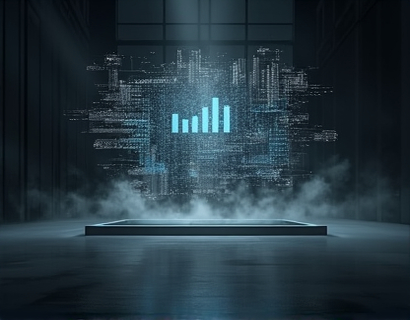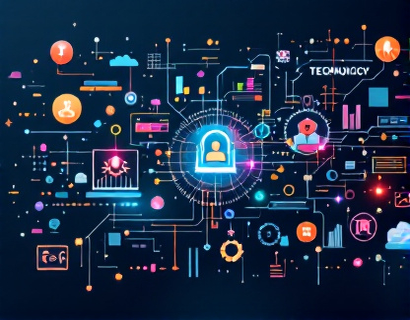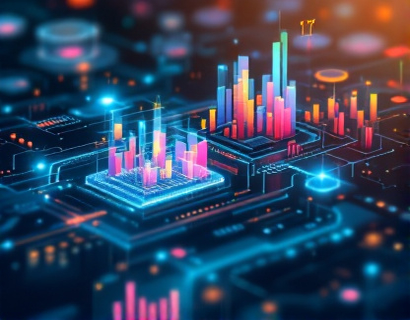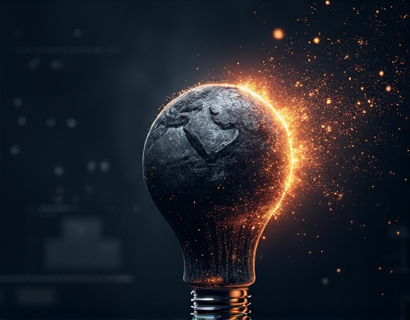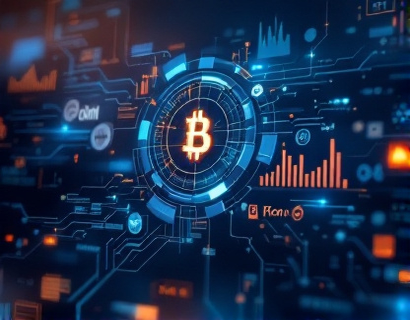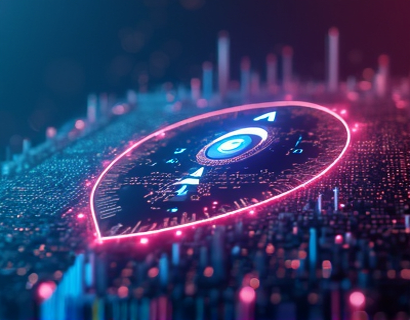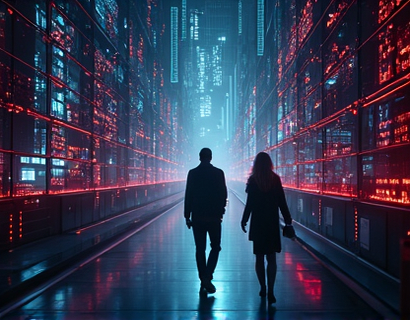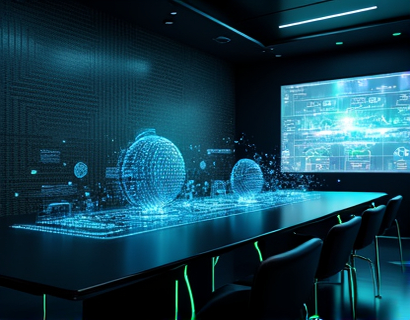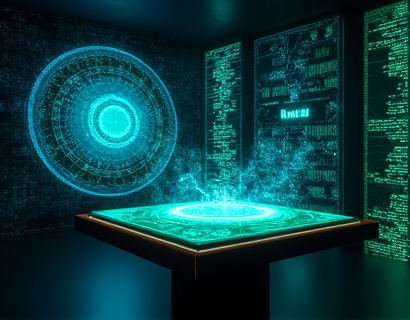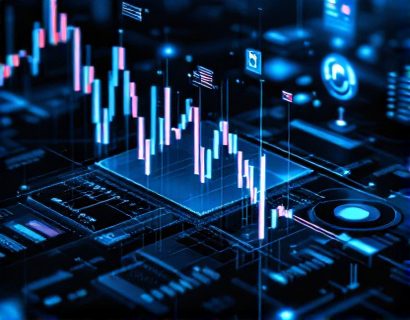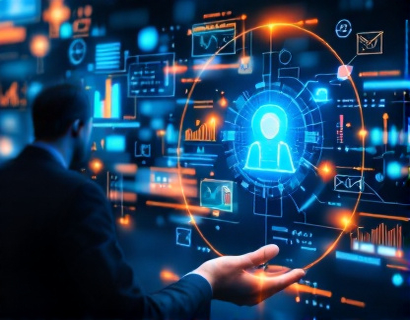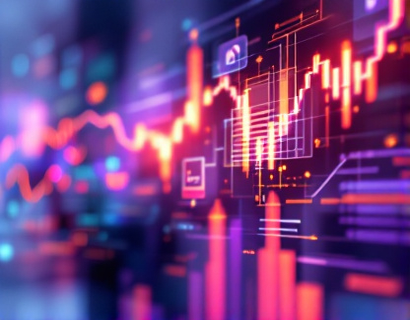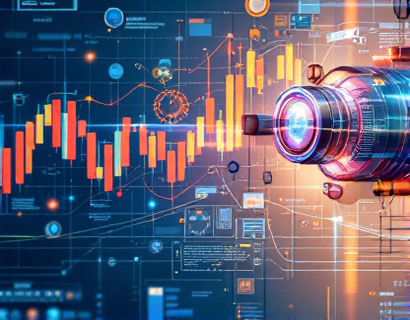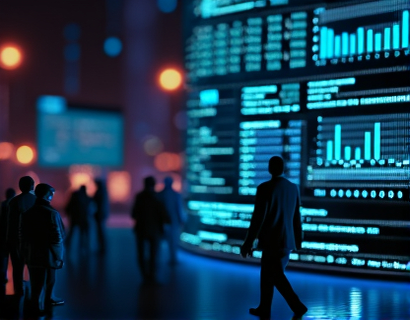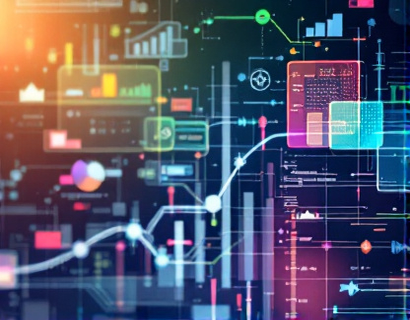AI and Blockchain: Revolutionizing App Ecosystems for Enhanced Digital Experiences
The integration of artificial intelligence (AI) and blockchain technology is ushering in a new era of digital innovation, fundamentally transforming app ecosystems and enhancing user experiences across the board. This convergence leverages the strengths of both technologies to create seamless, efficient, and secure digital environments. As tech enthusiasts and early adopters, understanding the synergy between AI and blockchain is crucial for grasping the future of connectivity and intelligence in online interactions.
Blockchain technology, known for its role in cryptocurrencies, offers a decentralized and immutable ledger system. This ensures transparency, security, and trust in transactions without the need for intermediaries. When combined with AI, which excels in data analysis, pattern recognition, and autonomous decision-making, the potential for innovation becomes vast. Together, these technologies can redefine how applications are developed, deployed, and interact with users.
Enhanced Security through Blockchain
One of the most significant benefits of integrating blockchain into app ecosystems is the enhancement of security. Blockchain's decentralized nature means that data is not stored in a single location, making it highly resistant to hacking and data breaches. Each transaction or data entry is encrypted and linked to the previous one, forming a chain that is nearly impossible to alter without detection. This inherent security feature is particularly valuable for applications handling sensitive information such as financial data, personal identification, and health records.
For instance, in the realm of financial services, blockchain can ensure that transactions are secure and tamper-proof. Smart contracts, self-executing contracts with the terms directly written into code, can automate and enforce agreements without the need for intermediaries. This not only reduces the risk of fraud but also speeds up processes and lowers costs.
AI-Driven Efficiency and Personalization
AI brings a different set of advantages to the table, primarily in terms of efficiency and personalization. Machine learning algorithms can analyze vast amounts of data to identify patterns and make predictions, enabling apps to offer tailored experiences to users. For example, recommendation engines in e-commerce platforms use AI to suggest products based on user behavior and preferences, enhancing the shopping experience and increasing customer satisfaction.
In the context of app ecosystems, AI can optimize resource allocation, improve performance, and reduce latency. By predicting user needs and system demands, AI can dynamically adjust resources, ensuring that applications run smoothly and efficiently. This is particularly beneficial for real-time applications such as gaming, video streaming, and IoT devices, where low latency and high responsiveness are critical.
Decentralized Applications (DApps)
A notable outcome of the AI and blockchain convergence is the rise of decentralized applications, or DApps. Unlike traditional applications that rely on centralized servers, DApps operate on a blockchain network, distributing data and processing across a network of nodes. This decentralization not only enhances security but also promotes transparency and user control.
DApps can range from social media platforms to marketplaces and gaming environments. For example, a decentralized social media platform can allow users to own their data, control privacy settings, and monetize their content directly, without intermediaries taking a cut. This shift empowers users and creates more equitable digital ecosystems.
Use Cases of DApps
1. Decentralized Finance (DeFi): DeFi platforms use blockchain to provide financial services such as lending, borrowing, and trading without traditional financial institutions. AI can enhance these platforms by analyzing market trends, optimizing trades, and detecting fraudulent activities.
2. Supply Chain Management: Blockchain ensures transparency and traceability in supply chains, while AI can predict demand, optimize logistics, and reduce costs. For instance, a supply chain management DApp can track the movement of goods from production to delivery, ensuring authenticity and efficiency.
3. Healthcare: In healthcare, blockchain can secure patient records and enable secure sharing between providers, while AI can analyze medical data to assist in diagnosis and treatment planning. A DApp in this domain could provide patients with control over their health data and facilitate seamless collaboration among healthcare professionals.
Interoperability and Standardization
For the full potential of AI and blockchain to be realized in app ecosystems, interoperability and standardization are essential. Different blockchain platforms and AI systems often operate in silos, limiting their effectiveness. Developing standards that allow for seamless communication and data exchange between these systems is crucial.
Initiatives such as cross-chain bridges and interoperability protocols are being developed to address this challenge. These solutions enable different blockchain networks to interact and share data, while AI can facilitate the integration and harmonization of diverse data sources and algorithms. This interoperability will be key to creating a unified and cohesive digital landscape.
Challenges and Considerations
Despite the numerous benefits, the integration of AI and blockchain in app ecosystems is not without challenges. Scalability remains a significant issue, as blockchain networks can struggle to handle high volumes of transactions. Layer 2 solutions and sharding techniques are being explored to address this, but more work is needed to make blockchain scalable for widespread use.
Another consideration is the regulatory environment. The decentralized nature of blockchain and the use of cryptocurrencies raise questions about jurisdiction, compliance, and legal frameworks. As governments and regulatory bodies begin to address these issues, developers must stay informed and adapt their solutions accordingly.
Future Prospects
The future of app ecosystems with AI and blockchain integration is promising. As technology continues to evolve, we can expect more sophisticated and intuitive applications that leverage the strengths of both AI and blockchain. The convergence of these technologies will likely lead to the development of new paradigms in computing, such as edge computing on blockchain networks and AI-driven blockchain governance.
Moreover, the rise of Web 3.0, a decentralized internet powered by blockchain, will further amplify the impact of AI. In this new web, users will have greater control over their data and online identities, and AI will play a pivotal role in enhancing security, personalization, and efficiency.
In conclusion, the integration of AI and blockchain is revolutionizing app ecosystems, offering enhanced security, efficiency, and personalized experiences. As these technologies continue to mature and interoperability improves, the digital landscape will become more connected, intelligent, and user-centric. For tech enthusiasts and early adopters, this is an exciting time to explore and contribute to the evolving world of decentralized and intelligent applications.



